Past Productions
2023: Ion
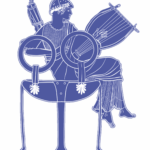 translated by Diane Arnson Svarlien
translated by Diane Arnson Svarlien
Characters | Plot | Cast and Crew
Creusa wrestles with her past and Ion finds his future in this family melodrama set at Delphi, under the long shadow of Apollo.
2021: Heracles and Deianeira
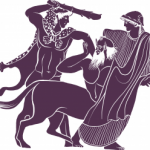
translated by Michael Jameson
Characters | Plot | Cast and Crew
The play depicts the fates of the hero Heracles and his second wife Deianeira, a family tragedy brought about by layers of deception and misunderstanding.
Heracles and Deianeira was also the 2020 Greek Play, when the COVID-19 pandemic had us adopt Zoom theatrical conventions and produce the play (in Bryan Doerries’ translation) live on screen.
2018: Medea
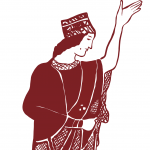
translated by Michael Collier and Georgia Machemer
Characters | Plot | Cast and Crew
Medea defends her honor and destroys her enemies in Euripides’ game-changing masterpiece.
2016: The Frogs
 translated by Mike Lippman and Diane Arnson Svarlien
translated by Mike Lippman and Diane Arnson Svarlien
Characters | Plot | Cast and Crew
Dionysus goes to the Underworld to bring back a playwright to save the world, and on his journey he meets frogs, corpses, rascal slaves, indignant innkeepers, not to mention his half-brother Heracles. Then he gets to preside over the best poetry slam ever. With props.
2014: Oedipus the King
 translated by Robert Bagg
translated by Robert Bagg
Characters | Plot | Cast and Crew
First performed in the 420s bce, Oedipus the King has become the model ancient tragedy for its terrible ironies and for its musings on humanity and fate. Oedipus, the good king of Thebes, slowly discovers over the course of the play that he has, in fact, fulfilled the prophecy he was trying so hard to avoid: that he would kill his father and wed his mother.
2012: Seven Against Thebes
 translated by Frederic Raphael and Kenneth McLeish
translated by Frederic Raphael and Kenneth McLeish
Characters | Plot | Cast and Crew
The play shows the ramp-up to a war between brothers Eteocles and Polynices and the consequences for their nation and family. The nation is Thebes and the family is of the now-deceased Oedipus, who has cursed his sons to mutual doom if they face each other in battle. The people of Thebes nearly panic at the advancing army, but Eteocles assigns a general to defend each of the city’s seven gates. When only he is left to face his brother, Thebes mourns the curse and the tragedy that results. Our production explores the urge to combat and the response of the community.
2010: Hecuba
 in a new translation by Jay Kardan and Laura-Gray Street
in a new translation by Jay Kardan and Laura-Gray Street
Characters | Plot | Cast and Crew | Video (through the journal Didaskalia)
Performed first in Athens in the 420s bce, Hecuba examines the aftermath of war, the breakdown of civil behavior, and the imperative for revenge. Hecuba was the queen of Troy until the Greeks destroyed her city, killed the men, and enslaved the women and children. We find her in the Greek camp getting the terrible news that one of her only remaining daughters will now be sacrificed to the dead Achilles, and her appeals for mercy to her famous foe Odysseus fall on stubborn ears. To add to her tragedy, Hecuba’s youngest son is also found dead, having been killed by the greedy man who was supposed to keep him safe. With the Greek general Agamemnon looking the other way, Hecuba takes revenge on that treacherous host and his family.
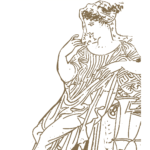 2009: Alcestis (The Centennial Greek Play)
2009: Alcestis (The Centennial Greek Play)
Characters | Plot | Cast and Crew | DVD Alcestis is considered a “problem play” because it has such extremes of tragedy and comedy in one short play. Alcestis has volunteered to die in the place of her husband Admetus, who has earned from Apollo the privilege of cheating Death. Once Alcestis has died, Heracles arrives, unaware that he’s imposing on the hospitality of a household in mourning. His drunkenness provides the satyric aspects of the show, but when he learns of the demise of his hostess, he brings back Alcestis from the dead. But is it a happy ending?
Randolph College students gave a single performance of the play in Skironio, Greece, on June 11, 2009, as part of the international study seminar, Practical Wisdom: Philosophy and Drama in Greece. You can still read the blog and hear the podcasts at the Practical Wisdom blog.
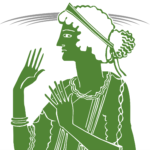 2008: Elektra
2008: Elektra
Characters | Plot | Cast and Crew | Production Photos | DVD First performed near the end of the 5th century bce, Elektra tells the story (told also by Aeschylus and Euripides) of the revenge that Orestes and Elektra take on their mother Klytemnestra for her murder of their father Agamemnon. In this version, their mission is accomplished by a cruel deception, and Sophocles challenges nearly all of our expectations: the evil of Klytemnestra, the callousness of Aegisthus, the virtue of Orestes, and the righteousness of Elektra. Please relish with us this study of a family gone very wrong.
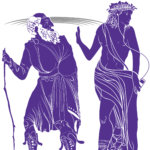 2006: The Clouds
2006: The Clouds
Characters | Plot | Cast and Crew | Production Photos DVD First performed in 423bce, The Clouds skewers the culture of classical Athens and the fashion for young men to polish their prose rather than their propriety. We meet Strepsiades, a father beleaguered by his partying son Pheidippides. The father determines that all his problems can be solved by the education provided at the Pondertorium, an institution presided over by none other than Socrates. Aristophanes’ satire of the philosopher and his hilarious depiction of daily life will bring a new mood to the Randolph College Dell. The humor is Shrek-like in its variety, and the Chorus of Clouds provide a surprising array of musical selections for the entertainment of all.
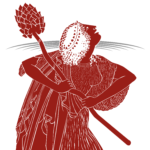 2004: The Bacchae
2004: The Bacchae
Characters | Plot | Cast and Crew | Production Photos | DVD In The Bacchae, Euripides shows the young god Dionysus making a tragedy out of Thebes when the inhabitants refuse to recognize his divinity. The god has caused the women of the city to take to a wild life in the mountains, and he proceeds to manipulate into destruction Pentheus, the unbelieving ruler of Thebes. The Bacchae who make up the chorus are eastern followers of the wine god who accompany him home to Greece. One of Euripides’ last tragedies, the play deals with religious extremism as well as the power of drama, which also falls into the orbit of Dionysus.
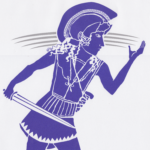 2002: The Libation Bearers
2002: The Libation Bearers
Characters | Plot | Cast and Crew | Video The tragedy tells of the revenge that Orestes and Electra take on their mother Clytemnestra, who has killed their father Agamemnon. The libation bearers of the title are the enslaved women who form the Chorus of the play and who assist in the plot. Aeschylus uses the famous story to explore the power of the gods and the bonds of family.The play is, in fact, the middle play of our only surviving trilogy from ancient Athens, The Oresteia, which was first performed in Athens in 458 bce, and last performed at Randolph College in 1954 ce. In the first play of the trilogy, Agamemnon returns home from the Trojan war only to be murdered by his wife Clytemnestra. In the third play, Orestes must go to Athens to stand trial for having killed his mother.
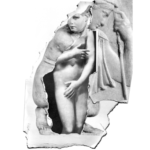 2001: Iphigeneia at Aulis
2001: Iphigeneia at Aulis
Characters | Plot | Cast and Crew | Video Iphigeneia at Aulis, about a young woman’s decision to be a hero in the face of her father’s cowardice, is set at the beginning of the Trojan War. In order for the Greeks to sail to Troy, General Agamemnon must sacrifice his daughter Iphigeneia, and he has her come to the port of Aulis under the misapprehension that she’s going to marry Achilles. Euripides, one of the great playwrights of classical Athens, examines, among many other things, the place of the hero and the roles of men and women in ancient Greek society.
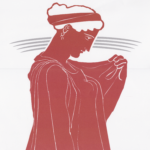 2000: Antigone
2000: Antigone
Characters | Plot | Cast and Crew | Video Sophocles’ Antigone pits the title character against Creon, the current ruler of Thebes. Antigone’s brother Polynices has died while attacking Thebes to regain the throne from his brother Eteocles, who also dies in the conflict. Creon decrees that Eteocles may be given a proper burial, but that Polynices must be left for the birds and dogs, since he traitorously raised an army against his hometown. Antigone defies the order and buries her brother, and Creon condemns her to death. Their actions set in motion many unintended consequences. The play dramatizes the conflicts we still have between public and private, male and female, law and religion, state and family.
The Randolph College production revived the Greek Play tradition and brought more than 1,100 people to campus.
1955 to 1999
We are trying to fill in the gap between Whiteside and Cohen. Please let us know about R-MWC productions you were part of in those years. We’re keeping a list of those plays here, and we’d love to fill in with more information.
1909 to 1954: The Whiteside Productions
In the future, we plan to showcase archival materials here. In the meantime we have available a list of the plays that Miss Mabel produced.

